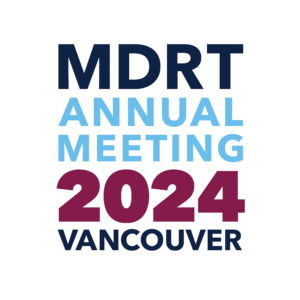 No single person, no matter how intelligent or experienced they are, can understand everything there is to know about being a financial advisor. You can only go so far on your own. Questions come up when working with clients or perhaps about how to manage a team or run your own business. When they do, you need to have a handle on what specific support is needed and how to ask for it.
No single person, no matter how intelligent or experienced they are, can understand everything there is to know about being a financial advisor. You can only go so far on your own. Questions come up when working with clients or perhaps about how to manage a team or run your own business. When they do, you need to have a handle on what specific support is needed and how to ask for it.
Here are some ideas about how to effectively seek support and information:
Reach out to the right person. Sometimes unhelpful or unsupportive people act out of a lack of knowledge. Before you connect, consider if you are contacting the correct individual. This person may no longer be current on the issues you need help with. If you require specific examples of what to do, reach out to someone good at providing practical advice — not someone who offers platitudes like, “You’re smart, you’ll figure it out.”
Understand the support you need and ask for it. Make it clear where you need help. Do you need support on a particular problem? Do you require assistance to better understand a case in its entirety? Perhaps you need to just grasp your specific role in it? What is it exactly that you need? It’s not a good idea to assume that people will automatically know. Tell them.
Set realistic expectations of others. Many times, people are weathering enough challenges of their own. They may not have the time or resources to be as supportive as you’d like them to be. Is it possible you’re asking for too much? This is where realistic expectations come in. Be sure you’re asking for assistance, nothing more. If your requests are excessive, you will need to start giving back before you can expect any support in return.
Lack of support often means a lack of communication. It can prove difficult to obtain the help you need if there is a big gap in communication. An outgoing person may be happy to talk at length about your problem. But if you assimilate information better by watching a video that explains the issue, contact a colleague who will use a platform like this to help. You may not “get” what the other person is saying, or the individual you’re asking might not understand your request because of a communication gap.
Network, network, network. You can never know too many people! If a trusted colleague who you relied on exclusively retires, moves or goes to another company, what then? A network of trusted friends, peers, mentors and the like can help in areas where you don’t have expertise. A change of perspective may be what you need instead of relying on the same person. MDRT, the MDRT Academy and MDRT Center for Field Leadership offer a network of successful financial advisors from around the world, including through mentoring and meetings.
Be willing to accept advice. We all like to give good advice but we are sometimes awful at accepting the advice of others, as it forces us to admit our weaknesses. It’s normal for an individual to think they know more than they actually do. Remember, there is a reason you asked for assistance. Don’t take their suggestion personally. Consider if doing what the person advises will help you professionally. If it will, do it!
In conclusion, never assume someone understands what you are asking. Don’t rely on a single person for assistance, and be sure to reach out to the person who can address your problem best.
Susanne Tedrick is an infrastructure specialist for Azure, Microsoft’s cloud computing platform. She’s the author of “Women of Color in Tech” and the upcoming “Innovating for Diversity.” For more information, visit susannetedrick.com.
Learn more:
- The MDRT Academy is a new association for financial professionals striving to reach MDRT-level production.
- MDRT Center for Field Leadership is for field and home office leaders who want to build an MDRT culture of excellence within their organizations.






Similar Posts
Don’t mistake taking action for moving toward your goals
How self-confidence makes you soar
From life insurance beneficiary to financial advisor